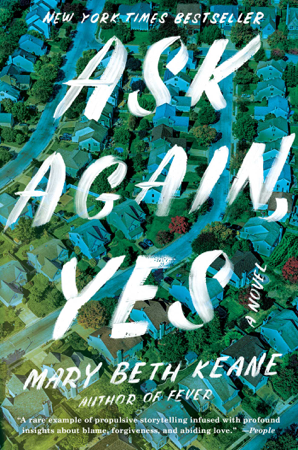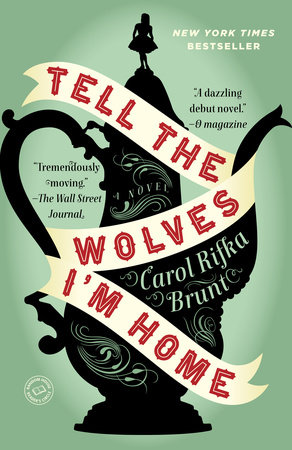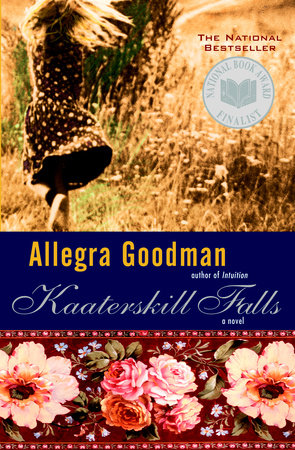When I was a child, my parents took my sisters and me apple picking in the Hudson Valley, though we thought of it only as upstate, a place with enough open space to astonish girls from Brooklyn, where running is done from curb to curb.
That was as much as I knew about the Hudson Valley until I went to Marist College in Poughkeepsie, New York. Coming and going from class or the library, I’d walk along the edge of campus for the view of the river with the mountains rising behind it. In late in October, the first flush of color appeared, as though the veins of the leaves were lit with a thousand slow-moving fires. To see the mists rising off the Hudson on bitter winter mornings was to see a river of ghosts. In spring, the mountains were green and the river sparked with sunlight. In summer, I was gone. Two hours—the length of the ride on the Metro North from Poughkeepsie to Grand Central Station. Two hours, but it was leaving one world for another.
At Marist, I learned that the Hudson Valley is a region of New York with its own distinct history, art, architecture, and literature. My novel, Ghosts of the Missing is set in the fictional Hudson Valley town of Culleton. The book follows Adair McCrohan goes to live with her uncle in the Culleton after the death of her mother. Her uncle is both caretaker and poet-in-residence at a writers’ colony, housed in what was once one of the grand estates of the region.
The books below are either expressly about the Hudson Valley, or they are set there. As Ghosts of the Missing, the past and present often intersect and where they meet, there are hauntings, literal and figurative. Whether fiction or nonfiction, each portray the vibrancy of the region, its folklore, its tragedies, and its beauty.
Possessions: The History and Uses of Haunting in the Hudson Valley by Judith Richman
This book explores how the Hudson Valley gained its reputation as an especially haunted region with ghost stories that span centuries and cultural backgrounds. Richman deftly explains how tales of hauntings often have less to do with the dead and more to do with the living, searching for a way to understand their own world.
Ask Again, Yes by Mary Beth Keane
Ask Again, Yes is set in the fictional Gillam, based on Pearl River, where author Mary Beth Keane grew up. Two New York City police officers live next door to each other, both having moved away from the city to remove their families from the violence of 1970s New York. The families’ lives remain entangled in ways none of them could ever predict.
World’s End by TC Boyle
TC Boyle won the Penn/Faulkner for World’s End, in which he tells the story of Walter Van Brunt, whose family of Dutch descent, have been settled in the Hudson Valley for generations. The novel spans from the 17th century through the late 1960’s as the heavy-drinking, lost-soul Walter searches for his father and is haunted, literally, by his family’s ghosts.
Tell the Wolves I’m Home by Carol Rifka Brunt
It’s 1987 and fourteen-year-old June Elbus lives in suburban Westchester with her parents and her older sister. Sensitive June only feels truly at home with her Uncle Finn, a renowned artist who lives in New York City. When he dies of AIDS, she is lost, until her uncle’s partner reaches out to her. This book contrasts safe, even sedate, suburbia with Manhattan, a world June saw on her visits to Finn but one she only begins to experience after he is gone and she begins to visit his grieving boyfriend on her own.
Little Chapel on the River by Gwendolyn Bounds
In this memoir by journalist Gwendolyn Bounds, she recounts an experience that is the opposite that of the fictional June Elbus. When Bounds’s Manhattan apartment is badly damaged on September 11, she finds a temporary home in Garrison and a new community in Guinan’s, the Irish bar known locally as the Little Chapel on the River. For Bounds, the Hudson Valley is the opposite of the city, a place of peace and solace. It is what she needs to regain her balance in a world completely changed.
The Widow’s House by Carol Goodman
A married couple move from Williamsburg, Brooklyn to their Hudson Valley college town where they become caretakers to an old estate, home to their former writing professor. Here again, the Hudson Valley is a respite to city life. Only in The Widow’s House, Clare Martin’s peace does not last as she begins to believe the old house may be haunted by the ghosts of the family who once lived there.
Kaaterskill Falls by Allegra Goodman
Kaaterskill Falls is a small town in Greene County, where a robust Orthodox Jewish community spends its summers, alongside the secular, year-round “Yankee” population. Elizabeth Shulman, wife and mother of five, begins to wonder about the world outside the only one she’s ever known.
Light Years by James Salter
Light Years is about a couple named Nedra and Viri who are raising their two daughters in their beautiful Hudson Valley home. Salter frequently evokes the serenity of their surroundings, “The river is a reflection. It bears only silence, a glittering cold.” Yet this is one sentence of many can stand as a metaphor for the slowly failing marriage at the center of the book.
The Legend of Sleepy Hollow by Washington Irving
In Washington Irving’s short story, published in 1820, Sleepy Hollow as a “sequestered glen” that is part of Tarry Town, where “a drowsy, dreamy influence seems to hang over the land, and to pervade the very atmosphere.” Ichabod Crane is a schoolteacher and purveyor of ghost stories who becomes one himself when he vanishes in the night, possibly at the hands of the Headless Horseman. Ichabod and the Headless Horseman live on in local lore, both in the story and in life, as Irving’s story is so emblematic of the Hudson Valley, that part of Tarrytown was re-named Sleepy Hollow in its honor.
The post 9 Books Set in the Hudson Valley appeared first on Electric Literature.










Be First to Comment